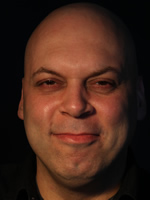From Civil Arab
Before I get into this amateur movie review of "Black Panther," and before I get into trouble, let me start with a few statistics.
Half of the residents of the African continent are Muslim. 33% of worldwide Muslims live in Africa, and they don't only dwell in nations where Arabic is the official language, like Morocco, Egypt, and Somalia. They're everywhere else too. 80% of Niger's residents are Muslim. 55% of Tanzania's are. 50% of Nigeria. 45% of Ghana. 33% of Kenya. 50% of Chad. 90% of Mali. (All stats here)
Islam was introduced into Africa only a few years after it was revealed in the Arabian Peninsula, and some time before it was introduced to present-day Iran, Turkey, Syria, and Egypt. The continent is home to mosques as old as Islam itself.
My point is this. The faith is a mainstream aspect of the continent's society as a whole. Islam is not some strange, minority phenomenon in Africa. It is not a scourge. But that's exactly how it was briefly illustrated in the film.
Let me also say that the "Black Panther" script was written by Americans, with what we can assume to be primarily American conceptions of Islam, Arabs, and Muslims. They're not Africans. Let's note that for posterity.
So, the movie opens with Black Panther and two of his co-heroines saving a truck full of young girls from Muslim bad guys in Nigeria. It's a direct reference to Boko Haram and the well-publicized 2014 kidnapping of hundreds of schoolgirls from the state of Borno in northeast Nigeria. In the scene, these "bad guys" wore Arab keffiyehs (those red-checkered scarves). One even threw in an Arabic word ("Wallahi, I'll kill her"). Members of Boko Haram don't speak Arabic, by the way. Further, the group has been universally condemned by Muslims, including the Muslim democratically-elected president of Nigeria. Muslims have been victims of Boko Haram (including many of those schoolgirls). Muslim soldiers have fought them.
Now, a moviegoer in Africa or the non-African Arab world might be well aware of these complexities and circumstances. But Black Panther is an American piece of art. And in this scene, in this respect, it's careless. And yes, in this scene, in this respect, it's textbook Islamophobia. Stereotypical. Devoid of context. Simplistic.
Additionally, the scene is completely superfluous. It has literally nothing to do with any other storyline in the movie. It just ticks off the "Muslim bad guy" box. It reminded me of the opening of "Back to the Future," where Doc and Marty are attacked (and Doc is shot) by yelling, irrational, gun-wielding "Libyans." That scene has been chronicled by many academics as anti-Arab/Muslim. That instance of stereotyping, at a minimum, had something to do with the story of the film. The occurrence in "Black Panther" seemed completely gratuitous.
Islam is portrayed, albeit briefly (which might make it worse), to the American audience as nothing more than a hostile, evil, even fringe element of Africa. In reality, that couldn't be further from the truth. The film illustrates Islam in a manner no more refined than "The Siege" or "True Lies." The scene in question would have fit into a Chuck Norris movie as easily as it was thrown into this one.
Ultimately, the scene is just another manifestation of the phenomenon that Muslims and Arabs are the most fashionable, consequence-free punching bag in media, politics, and mass entertainment. It's done as a matter of routine with no prior reflection.
Does that mean the project, as a whole, is Islamophobic? Of course not. I recognize, and delight in, the deep importance of this to Black communities. I share in that jubilation. Everyone, and every Arab, should see this movie. Any call to boycott it is silly. But its magnificence in one respect doesn't immunize it from critique in another.
As an Arab American watching the film, I was energized by seeing superheroes of color. I was actually harkened back to my own youth, when my parents made it a point that we would gather as family in the living room and watch Black sitcoms like "The Cosby Show," "Family Matters," "A Different World," and so on. The authorization of Black voices and narratives in the film is monumental, especially in a movie this grand. I enjoyed the overt rejections of white supremacy and colonialism (the film wasn't very creative or subtle in this respect, but that's OK with me). The movie painted what an African nation could have been without the evils of colonialism. I see all of that. I love all of that.
"Black Panther" is a $200 million Marvel superhero movie, so I don't necessarily expect it to be sophisticated, delicate, or profound in a social or political manner. On the other hand, it will gross over $1 billion, and to demonstrate that a Black movie can do that is wildly important.
But let me ask you this. Imagine a film directed and written by Arabs, populated by Arab actors, celebrating Arab culture, depicting us as refined, fierce, compassionate, technologically superior, and all-around badasses. Now imagine it opened with a scene with our Arab superhero rescuing young Arab girls from stereotypical Black "thugs" and "gangsters." Arab American intellectuals and activists who have been working for intersectionality, myself included, would be up in arms, denouncing a clear instance of the perpetuation of anti-Black images.
(Note: You can view every article as one long page if you sign up as an Advocate Member, or higher).






